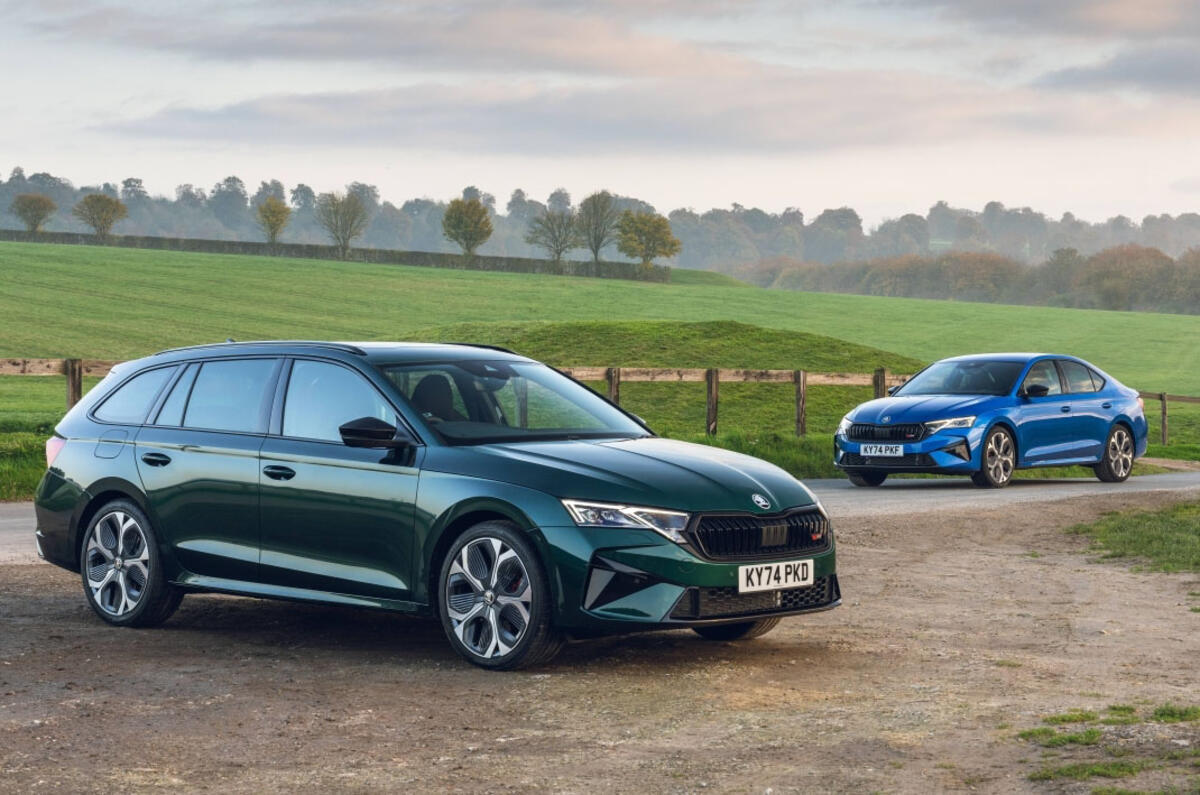Skoda has “no plans” to offer the updated Octavia vRS with a plug-in hybrid powertrain.
When it arrived in 2020, the hot Mk4 Octavia offered petrol and diesel engines and, for the first time, a PHEV system.
Skoda used this electrified powertrain as a signal of intent for its future performance models – especially significant, given this flagship’s long association with diesel power.
The PHEV system used a 1.4-litre turbo petrol engine and a 114bhp electric motor for a combined system output of 242bhp. This was identical to the petrol vRS but offered more torque, a 2.2sec quicker 50-70mph sprint time, and much better fuel efficiency. Meanwhile, a 13kWh battery pack gave it 39 miles of electric-only range.
Asked if a PHEV powertrain could return to the Octavia vRS, given that other car makers are adopting such tech for their performance models, Skoda told Autocar: “There are currently no plans for the Octavia vRS to be offered as a plug-in hybrid. As always, Skoda continually reviews the model line-up.”
The updated Octavia vRS now exclusively draws power from the 2.0-litre turbo petrol found in the Volkswagen Golf GTI – previously the best-selling of the three powertrain options.
This now features upgraded fuel injectors, increasing power by 20bhp to 262bhp (torque remains at 273lb ft), meaning the Octavia vRS is more powerful than ever before.








Join the debate
Add your comment
The PHEV was slower to 60 not 2.2 seconds faster. It has the same power but is a fair bit heavier which also effected the handling.
And that was probably tested with a fully charged battery
Most likely, I think PHEVs and hybrids are just a stop gap with added complexity and weight. I went for the tsi vrs, I expect it will be my last petrol car but my intention is to go for pure electric next, hopefully when their weight and price have reduced!
Hopefully the retreat of the PHEV will continue to Tax Dodging Heaven where it belongs.
Why?
Why, why would anycar car need 2 engines. BMW boss said in an Auto car interview that 95% of phev's go to company car drivers, it exists purely for tax dodging, just look at the depreciation figures as proof.
Last, but not least, why spent an extra 6k on a worse car to save around 300 pound a year on petrol.
Why, why would anycar car need 2 engines?
Ask Mr Toyota, he doesn't seem to have done too badly from selling cars with two engines.
Skoda now offer a PHEV option on their Mk2 Kodiaq. The story is specific to the Octavia Vrs, not PHEV.
Why, you still haven't answered the question, why does a car need two engines.
Toyota phev's, niche, and as I said tax dodging special or uber car.
Kodiaq phev, that works out well. Skoda had to lose 2 seats to gain another engine, oh and it's an extra 4k.
Why?